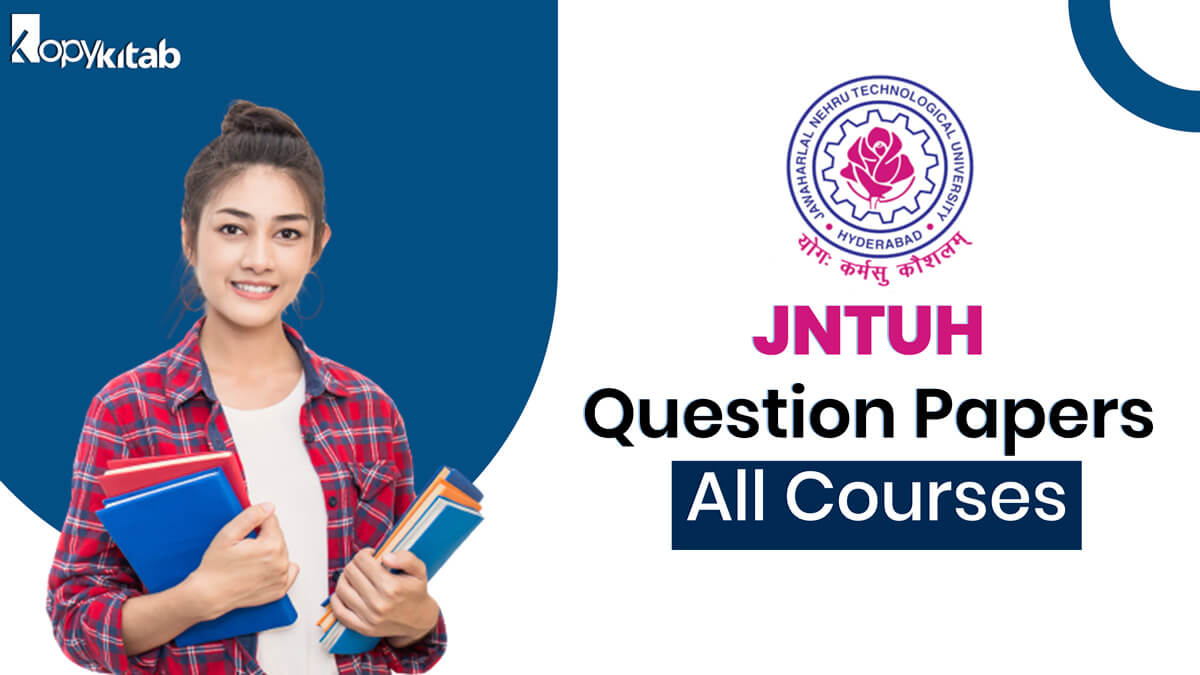
JNTUH Question Papers are provided here for students to help in their exam preparation. The more students practice, the more command they will get over the subject. Solving the JNTUH Previous Year Question Papers before the board exams will give students an idea about the question paper pattern, marking scheme, and difficulty level of exams.
Moreover, they will also get thorough with the types of questions asked in the paper. The question paper is designed by the JNTUH based on the syllabus.
About JNTUH
Jawaharlal Nehru Technological University, Hyderabad (JNTUH Hyderabad) is a public university, located in Hyderabad, Telangana.
Founded in 1965 as the Nagarjuna Sagar Engineering College, it was established as a university in 1972 by The Jawaharlal Nehru Technological University Act, 1972. The university is situated at Kukatpally Housing Board Region in Hyderabad of India.
JNTUH Overview
|
Name Of The University |
Jawaharlal Nehru Technological University Hyderabad (JNTUH) |
|
Name Of The Exam |
Semester/ Annual Exams |
|
Name Of The Courses |
B.Tech, B.Pharmacy |
|
Regulations |
R19, R18, R17, R16, R15 |
|
Category |
JNTUH Syllabus |
|
Location |
Telangana |
|
Official Website |
jntuh.ac.in |
JNTUH Question Papers For All Courses
Students need to focus on the latest JNTUH Previous Year Question Papers to score higher marks in the exam. These papers will help students revise effectively for their examination by making them aware of the latest exam pattern and marking scheme.
The JNTUH previous year question papers are as given below:
Benefits of Solving JNTUH Question Papers
Here you can check a few notable advantages of solving the JNTUH Question papers:
- You can boost speed by solving the complete question paper on time and learning time management for the exams.
- Based on your strong and weak points in the subjects, You can easily select the section to solve first and end.
- You can analyse yourself by solving the JNTUH question paper. They can now work on them as a result. You’ll learn about the present phase of development and level of preparedness.
- JNTUH question papers help you to uncover silly errors. You should practise as many example papers as possible.
- Solving these papers will help you to improve your exam grades. You can also analyse present exam preparation.
- You can easily determine how much effort you will need to put in.
- You can concentrate on weaknesses and enhance test results.
How To Solve JNTUH Previous Question Papers To Score High?
You want to maximize the benefit and retention from solving the JNTUH Previous Year Question Papers!
Solving JNTUH previous year papers is a complete revision in itself. Thus keeping the following points in mind will be beneficial:
- Attempt after completing syllabus: Ideally, JNTUH question papers should be attempted after completing the syllabus. You must consider the time as the main exam.
- Accuracy, Time and Speed are the key factors that decide the final scores in an actual setting. You should attempt JNTUH question papers with a similar mindset.
- Summary of Formulas and Concepts: While attempting the previous year papers, you can maintain a thick notebook with all the formulas and keep updating it with every sectional test they give and revise it once every few days.
- Record Performance: To assess your preparation, you can maintain a performance record.
- Analyze: Analyzing JNTUH previous year papers is twice as important as writing them. It would help if you devoted more time analyzing your performance in these JNTUH papers than taking them. Try to attempt the following previous paper only after analysing previous papers thoroughly and learning from your mistakes.
- Identify your strengths and weaknesses.
- Identify silly & avoidable mistakes to avoid them in the actual examinations.
- Increase your speed and find out your high scoring areas
- Find alternate ways and shortcuts to solve questions.
We have covered a detailed guide on JNTUH Question Papers. Feel free to ask any questions in the comment section below.
